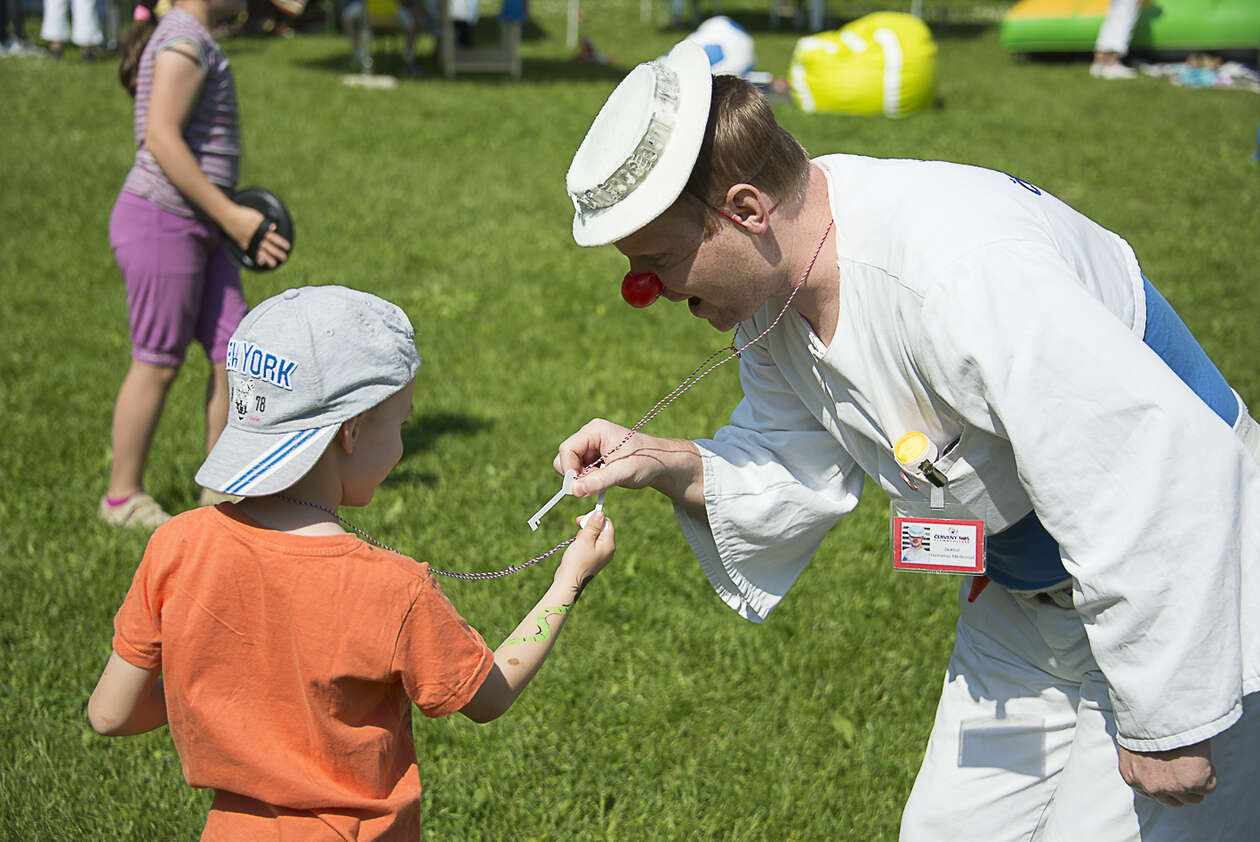“People with autism don’t live in a bubble; their lives are rich and colourful”
“People with autism don’t live in a bubble; their lives are rich and colourful”
For Maria Helexova, autism is her life story, her work and her mission. She is a mother of 17-years old boy with Autism spectrum disorder (ASD) and she works as a head of SPOSA BB, an organization in Slovakia that helps children with ASD and their parents. Hospital clowns are regularly invited to events organized by SPOSA BB.
- You devoted your professional career to helping people with ASD as a head of organization SPOSA BB. It seems that parents of children with disabilities often establish these kind of organizations.
It is true. Being a parent of a child with ASD is difficult – regarding time, mental health and especially acceptance. You need to learn to accept ASD as a part of your life, a part that you somehow can’t let go. Fighting won’t help. If you accept it, the path is not easy, but it’s easier.
- There is a common opinion that people with ASD are isolated in their own world. What is your experience?
I would say that children with ASD are alone in this world. Intellectually, many of them are on a different level compared to other children at their age. Therefore, finding friends is difficult for them. Many times it looks like that people with ASD are isolated, that they have a world of their own, that they are in a bubble. But they are not in a bubble. They have problems with communication. Their surroundings don’t accept them. To avoid being hurt, they isolate themselves and play their favourite games or do their stereotypical hobbies. However, once you get to know people with ASD deeper, you realize that their world is rich and maybe even more colourful that ours. For this, you need time, and unfortunately, our society is too fast. Autistic children need a lot of time, peaceful environments and acceptance.
- How are children with ASD affected by Covid-19 pandemic?
They are facing a deep isolation. Before these children used to go to events, be in contact with others. Now they lack this contact – they no longer meet in schools or in organisations such as ours. Now children work on their computers and tablets. People with ASD tend to get easily irritated by too many people, many stimuluses, smells, sounds, touch. Once they get used to the virtual reality or sterile environments of their homes, it will be harder for them to come back.
- You are a mother of a boy with ASD. Is raising a child with disability different?
You need to start seeing the world through the eyes of your child – only then you can understand why he is acting the way he is. It is very important that a parent of a child with ASD is calm and balanced. That, of course, is very difficult to achieve, especially nowadays. If we go somewhere and I am calm, my son is calm too, and he can manage the situation much better. Self-control is probably the most difficult part of being a parent of a child with ASD. Our children are very attached to us. It is as if there was an umbilical cord between us. For example - when I’m having some problem at home, my son, who is at school at that moment, can feel it and it makes him nervous.
- How can we as a society help parents of children with ASD?
Parents of children with ASD are often judged by others. This is because children with ASD can behave in a way that might seem rude or spoiled. When you are in public and your child has a tantrum, people tend to give you advice. Suddenly everyone is clever. This can be very hurtful for parents, especially if they still haven’t accepted a diagnose of their child. This used to be a problem for me too. It made me feel desperate and furiously helpless. You can’t even be mad - you just want to cry. Your whole world falls apart. But after some time you are able to rise above it. You start to meet people who act differently. I have some beautiful memories. My son had a tantrum in a shop. I didn’t know what to do – I had a full shopping trolley, my son was in that trolley, too… Then a stranger woman came to me and said: “I know this, I know what you are going through. Just stay here, I’m going to tell the shop assistant to open the cash desk and let you out.“ There are many good and sensitive people out there. So what will help parents of children with ASD? Don’t judge them, don’t devalued them. Instead – try to find a way to help them. We all have a power to change things. Using a kind word and a will to find a solution is always better than acting aggressively. This is what parents of children with ASD need. The truth is that they are all deeply hurt.
- When you organize events for children with ASD, you often invite hospital clowns. Why do you like their work?
Sometimes parents say children are scared of clowns. That is not my experience. Some children were thrilled. In my opinion, clowns can help not only children, but also us – parents and employees. They bring us joy, laughter and lightness. Often we are in a vicious circle – work, making money, managing life. Our hearts are closed, but clowns can open them again.
*Interview from our partner organisation in Slovakia, Cerveny Nos


